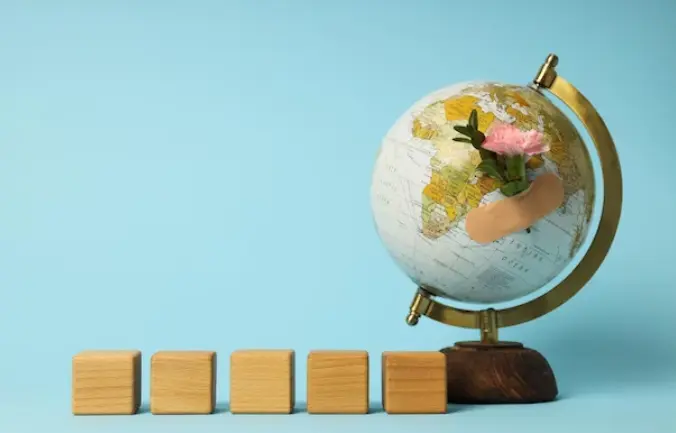
In a recent report, the International Monetary Fund (IMF) has projected that India's share of global economic growth will rise substantially over the next five years. The report highlights India as a key player in driving the global economy and forecasts its share of global growth to increase to 18% by 2026. This development is not only significant for India but also has broader implications for the global economic landscape. In this blog post, we will delve into the reasons behind this optimistic forecast and explore the potential impact on India and the world.
India: Growth Engine of the Global Economy
Demographic Advantage
India boasts a young and dynamic workforce, with a median age of around 29 years. This demographic advantage, coupled with a rising middle class and increasing urbanization, creates a fertile ground for economic growth and consumption.
Structural Reforms
Over the past few years, India has undertaken several structural reforms to attract investments, streamline regulations, and boost entrepreneurship. Initiatives such as "Make in India" and "Digital India" have encouraged domestic production, foreign direct investment, and technological advancements.
Digital Transformation
India is experiencing a digital revolution, with widespread adoption of smartphones and the internet. This digital transformation is driving innovation, e-commerce, and digital payments, creating new opportunities and disrupting traditional sectors.
Infrastructure Development
The Indian government has prioritized infrastructure development through initiatives like "Smart Cities Mission" and "Bharatmala Project." Investments in transportation, energy, and connectivity are expected to enhance productivity, stimulate economic activities, and attract investments.

Global Implications
Trade and Investment Opportunities
India's growing influence in the global economy opens up significant trade and investment opportunities for both domestic and foreign businesses. The rise in India's share of global growth indicates a larger domestic market and increased demand for a wide range of goods and services.
Shift in Global Power
As India's economic weight increases, it will have a greater say in the global economic and political landscape. This rise in power may lead to reforms in global institutions like the IMF and the World Trade Organization (WTO), reflecting the changing dynamics of the international order.
Increased Collaboration
The growth prospects in India will foster greater collaboration between India and other countries. This collaboration may include technology transfers, research and development partnerships, and joint ventures, leading to innovative solutions for global challenges.
Influence on Geopolitics
India's vibrant economy will influence regional and global geopolitics. As a growing economic power, India will have a stronger voice in international negotiations, shaping strategic alliances, and addressing global issues like climate change, cybersecurity, and sustainable development.
Challenges Ahead
Despite the positive outlook, India still faces challenges that need to be addressed to achieve its full potential:
Inequality and Poverty
India's rapid economic growth must be accompanied by inclusive policies that address inequality and reduce poverty, ensuring the benefits are shared by all sections of society.
Infrastructure Gap
The development of adequate infrastructure remains a significant challenge in India. Continued investments and reforms are required to bridge the infrastructure gap and support sustained economic growth.
Skill Development
To fully leverage its demographic advantage, India needs to focus on skill development and education to equip its workforce with the necessary capabilities for the future.
Environmental Sustainability
As India pursues economic growth, it must also prioritize environmental sustainability. The challenge lies in balancing economic development with measures to mitigate climate change and preserve natural resources.
Conclusion
India's projected rise in global economic growth presents a significant opportunity for the country to transform into a major global player. With its demographic advantage, structural reforms, and digital transformation, India is poised to drive innovation, create jobs, and contribute to global economic progress. However, addressing challenges such as inequality, infrastructure development, skill enhancement, and environmental sustainability will be crucial. As India's influence grows, the world must embrace this shift and look for avenues of collaboration to ensure a sustainable and inclusive global economic order.








